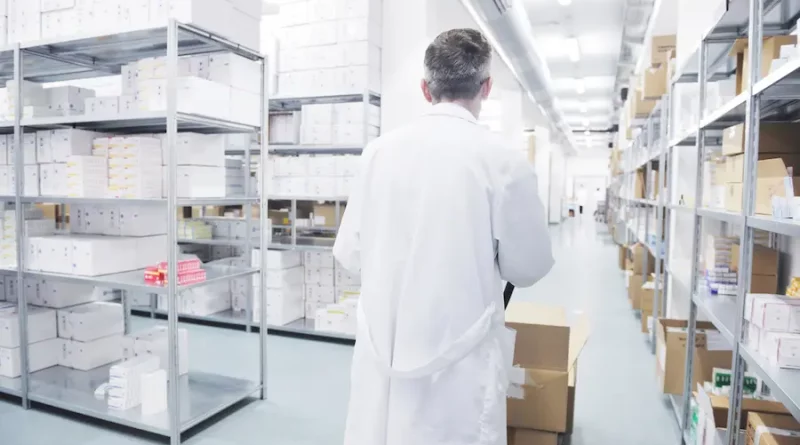Understanding Warehouse Storage Conditions for Pharmaceuticals
Pharmaceutical products have strict guidelines that define their quality. A pharmaceutical product must be pure, correctly identified, and safely and effectively administered. Patients and other consumers have a legal and ethical right to expect their pharmaceutical products to be of acceptable quality.
The warehouse becomes an integral part of quality assurance for pharmaceutical products. Therefore, consider their pivotal role in manufacturing quality products, as they are responsible for all incoming goods, from labeling to packaging. They are also responsible for releasing finished products deemed fit for use.
With all these aspects depending on warehouse storage conditions, there are GMP rules in place for the products. These rules ensure materials and products are handled and appropriately stored while detailed documentation is maintained.
GDP & GWP
GWP and GDP are important aspects of regulation within the pharmaceutical industry. GDP refers to the transport and distribution of products. Meanwhile, GWP refers specifically to the practices held within a company warehouse.
Good Warehousing Practice (GWP) and Good Distribution Practice are each critical aspects of GMP to uphold. These rules are fundamental to maintain once the warehouse receives a finished product. It will not undergo in-depth inspections to test for quality. If the product becomes damaged from mishandling or degrades from poor conditions at this stage, nothing will stop it from being given to a patient in an unsuitable state.
Why Warehouse Storage Conditions Matter
Since no further checks look into a product’s quality once a warehouse receives it, maintain its state when it arrives. If a patient receives a pharmaceutical product that is not up to the level of quality needed, it could be rendered ineffective or worse.
There are many cases of improper handling of products, being put into poor warehouse storage conditions, or roughed up during transport. These products can cause damage to the patience and the reputation of any involved organization with the handling of said products.
To minimize these risks, pharmaceutical warehouses absolutely must follow all regulations. Furthermore, they must be managed expertly and run in compliance with all rules to avoid being at fault for damaged or degraded products.
Some compliant practices include quality control, control over receiving goods, fulfilling picking requests, storing materials, and shipping pharmaceutical products to the appropriate marketplace. All products must be entirely traceable to protect the stability and integrity of any products and their packaging.
The impact on people’s health might be okay for areas where certain pharmaceuticals are readily available. However, rural areas that don’t have the best access to new medications need all the help they can get. One wrong shipment or group of damaged containers can cause an entire small community to lack the necessary pharmaceuticals.
High-Risk Pharmaceutical Products
Many pharmaceutical products are sensitive to mishandling and suboptimal storage conditions. In addition, many products in large quantities and not easily replaced will require careful handling. Therefore, carefully monitor their needs to ensure particular requirements for each product.
Monitor some warehouse storage conditions closely for certain pharmaceuticals, including temperature, humidity, and pressure levels. Therefore, ensuring keeping increasingly sensitive modern medicines at their best quality.
These high-risk pharmaceutical products call for specialty containers and conditions that ensure the product’s safety. According to Dickson Data, the specialty devices used in this process are freezer farms, which “can provide ultracold storage at -80°C, and cold storage at -20°F.”
For example, early Pfizer COVID-19 vaccines require these ultracold conditions. In addition, the technology used here is relatively new, making it all the more important to keep a close eye on how well they are functioning and the conditions they are setting.
Many view the bulk of the pandemic as over. However, these vaccines still require storage in high quantities. In addition, numerous other health-related products require extensive temperature controls similar to the vaccines, making their number grow as more ultra-sensitive pharmaceutical products.
Other Rules for GMP Warehouses
Other rules related to GMP Warehouses and general health concerns require proper reviewing and understanding of how the system needs to work. For example, a fundamental GMP control ensures that approved starting materials that have met certain specifications are the only ones authorized to formulate medicines.
Patient safety depends on closely following these guidelines. The population’s health is essential, and with people more health-conscious than ever, any error can cause massive damage to a warehouse’s reputation.
The government regulatory agencies and their auditors know and are keenly aware that any lack of control over material movement within a warehouse can lead to defective products. For this reason, the regulators regularly inspect warehouses, their warehouse storage conditions, and their warehouse procedures to ensure putting GMP rules into place and followed closely.
Some of the general rules they want to ensure adherence to prevent issues like contamination or mix-up are:
- Quantifying all incoming materials
- Inspecting quarantined materials and testing to verify their suitability for use
- Purchasing materials from approved suppliers following specifications
- All materials must be clearly labeled to indicate their test status and inspection
- Safe storage of materials
- Records maintenance for all issued materials to ensure traceability
If a warehouse finds any of these rules not being followed, it can spell serious trouble for them. So it is vital that these, and all other GMP rules, are followed with keen attention to detail to ensure that products that can put people at risk don’t slip through the cracks. Following these rules is essential for the warehouse’s reputation and, more importantly, for the safety of patients.

